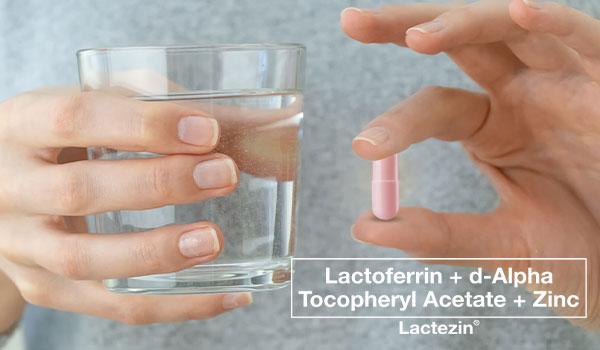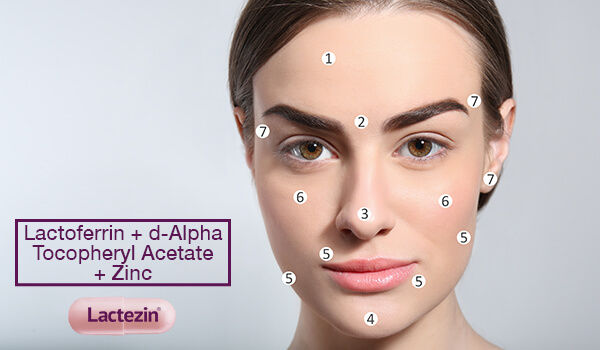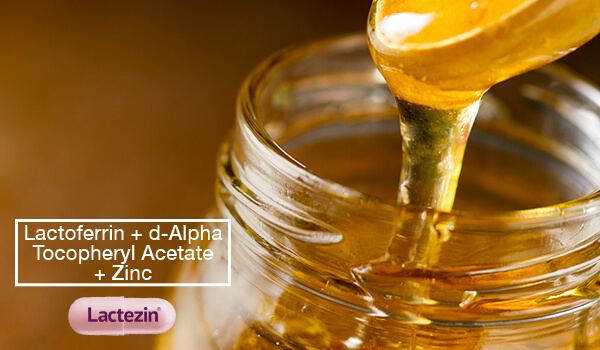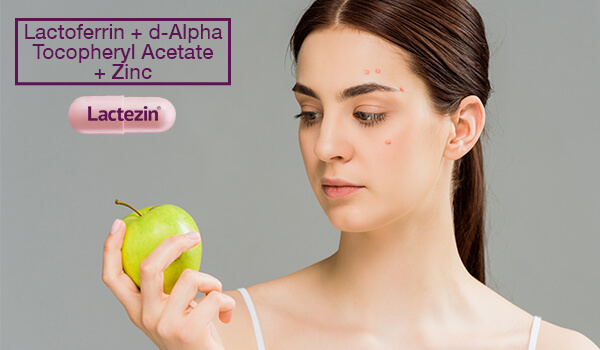Here's Everything You Need to Know About Over-the-Counter Acne Pills

If you’re dealing with stubborn acne, you know one thing for sure: it can be incredibly frustrating to find a treatment that works. But if you have tried topical treatments with little to no success, taking oral medication or OTC acne pills is another route you can consider.
Topical treatments and OTC acne pills
When you get the occasional pimple or two, sometimes you can clear them up with topical solutions like spot treatments, lotions, or gels. However, acne comes in different forms, from blackheads and whiteheads, to the more severe cystic acne. Cystic acne creates large, deep breakouts that can sometimes be painful– and often, they don’t go away with just topical treatments.
So when the topical skincare can’t get rid of persistent cases of acne, your health professional may recommend otc acne pills. Oral medications, which are taken by mouth and also called systemic medications, work from inside your body to improve your skin. Some medications you just take once a day, others you’ll take more often depending on what your doctor recommends.
Oral medication may also be helpful in treating acne that occurs in other areas of the body, like the back or the shoulders, which can be tough to reach when you’re trying to apply topical treatments. By taking oral medication, it can work on deep blemishes regardless of their location.
If your acne is stubborn but not necessarily severe, you can also opt to take otc acne medication on top of your regular anti-acne skincare routine to give it a boost.
When should I consider taking acne pills?
Acne sufferers know that it helps to be patient, especially when exploring treatment options.
In the case of topical treatments, it is not advisable to try new products every few days to see what works (this may actually irritate the skin and worsen breakouts). Dermatologists recommend that you give topical skincare products at least 4 weeks of regular use. If it works for you, you should notice an improvement in 4 to 6 weeks, and eventual clearing in about 2 to 3 months.
When acne persists even after proper use of topical treatments, oral medication may be prescribed. These are also called systemic treatments because they are absorbed throughout the entire body.
The more common oral treatments are only available with a prescription from your doctor. Some systemic drugs used to treat acne include:
Birth control pills
For some women, regulating hormone levels with birth control pills can help improve acne. These birth control pills with estrogen have been shown to reduce the effect of androgen, the hormones responsible for oil production in pores and cause pimples to form.
These oral contraceptives may be an ideal choice for women with acne that comes and goes with their monthly period, or for those who need a form of birth control either way.
Likely, your dermatologist may say that you need a topical acne medication to use alongside oral contraceptives.
Acne antibiotics
These antibiotics can help reduce acne-causing bacteria called Propionibacteria acnes and fight inflammation from the inside. Some commonly prescribed antibiotics include Doxycycline, Erythromycin, and Tetracycline. (Click here to learn more about acne)
Most often, people are started on a high dosage and moved to lower dosages as acne shows signs of improvement. Oral antibiotics are used to treat moderate to severe acne, or persistent acne.
These acne antibiotics work better when paired with topical treatments, so your dermatologist may prescribe benzoyl peroxide, retinoids, or another treatment as part of your acne management pan.
Aldactone (spironolactone)
Aldactone is another acne antibiotic that’s used by adult women only. It isn’t an acne treatment per se, but it can be used in certain situations to treat hormonal fluctuations that contribute to breakouts. This antibiotic is not commonly used, but for some women, it can be helpful in treating acne that isn’t getting better with the more commonly prescribed treatments.
Isotretinoin
For more severe forms of acne, a possible treatment option is isotretinoin, a retinoid that is taken orally. Isotretinoin is a very powerful form of acne medication, which is why a prescription is required before one can use potent drugs like this one. Also, the side effects can be severe, so it’s not for everyone.
An OTC acne pill: Lactoferrin + d-Alpha Tocopheryl Acetate + Zinc (Lactezin)
For mild to moderate acne, your health professional may recommend taking Lactoferrin + d-Alpha Tocopheryl Acetate + Zinc (Lactezin), an oral acne medication that helps treat pimples from the inside.
Lactoferrin + d-Alpha Tocopheryl Acetate + Zinc (Lactezin) is a clinically-tested over-the-counter drug that can help treat acne. It uses ingredients Lactoferrin combined with Vitamin E and Zinc to help lessen pimples and give clearer skin in as early as 2 weeks (when taken twice daily).
SOURCES:
https://www.verywellhealth.com/oral-acne-medications-15633
https://nyulangone.org/conditions/acne/treatments/oral-medications-for-acne


